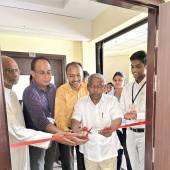Myanmar Pastoral Leaders worry about Students opting for Early Marriage due to the Pandemic

Pastoral leaders worry that students in rural Myanmar may get married even before their official age because schools and learning centers are closed due to the pandemic. The leaders say some students already contracted marriage who were below the mandated age.
Myanmar has 18 years as a minimum age to get married irrespective of gender. The Catholic Church encourages marriage age for males to be at least 20 years and females to be 18 years or older. In rural areas, people usually marry early, between fourteen and seventeen.
“For this year, about 80% of the students are away from schooling and only 20% of them can keep on learning amid pandemic and political turmoil in Myanmar,” said Naw Mary Oo, a schoolteacher in Mawlamyaine Diocese.
Some parish centers tried to help young people complete their higher education as far as possible before the pandemic. For decades, these parishes had boarding houses for the school children regardless of their beliefs. But that changed in the pandemic.
“Church properties in the parish are available for the use of the students... But due to Covid-19, parents are reluctant to let their children go to the learning places to be with other students,” said Father Bruno Philip, a parish priest in Mawlamyaine Diocese.
The priest says that the longer the children are far away from learning, the more challenging it is to bring them back to learn the lessons.
The priest predicts that the students below the mandatory age will get married with “no adequate knowledge.”
“We are to find ways and means to educate our children amid different difficulties,” said the priest.
The students lack learning opportunities. Many students return to their native places to join their parents and relatives to earn a living. Pastoral leaders predict that many students will not return to the classroom even if the situation gets better.
“I want the schoolteachers to go to different villages and find out the possibilities of teaching the young people according to their grades. Those in the town and cities can learn online. But for those in the provinces, they cannot afford the demands of online learning, and it would be convenient for the students only when the teachers are physically present to them in their locations,” said Saya Joseph, a Catechist.
“It is a time to worry for all the children. They can get married at an early age or they can fall for inappropriate company,” added the Catechist.
“Some of our young people are depressed and ask why such disasters take place in their time. Many become impolite since many are away from being instructed ethically. If there is an opportunity, I will teach them together with moral lessons,” Le Le Win, a schoolteacher.
“It has been two years already that I could not go to school. I am very sad. The situation makes me sad. I would like to return to the classroom, and I am expecting to have the normal situation like before,” said Saw Bosco, an eighth-grade student.
Beginning from February 1, 2021, Military Coup, the entire situation, including the education system in Myanmar, is deteriorating. Although it has already been more than nine months, the situation is still volatile.
Radio Veritas Asia (RVA), a media platform of the Catholic Church, aims to share Christ. RVA started in 1969 as a continental Catholic radio station to serve Asian countries in their respective local language, thus earning the tag “the Voice of Asian Christianity.” Responding to the emerging context, RVA embraced media platforms to connect with the global Asian audience via its 21 language websites and various social media platforms.














